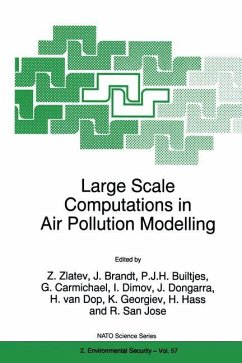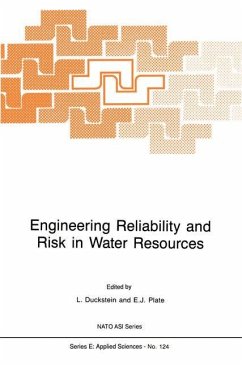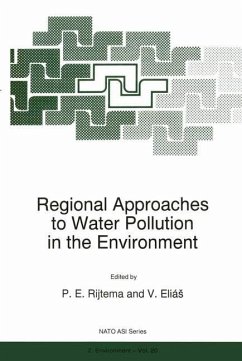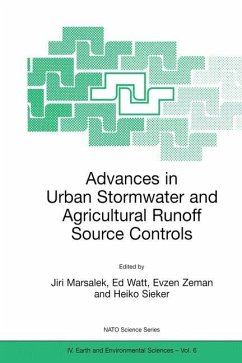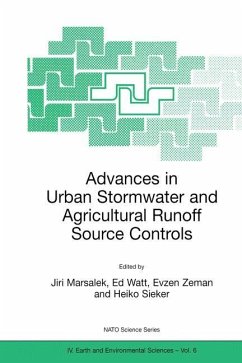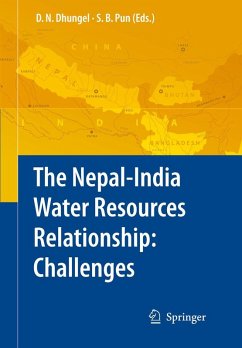
Engineering Risk in Natural Resources Management
With Special References to Hydrosystems Under Changes of Physical or Climatic Environment
Herausgegeben: Duckstein, L.; Parent, E.
Versandkostenfrei!
Versandfertig in 6-10 Tagen
226,99 €
inkl. MwSt.

PAYBACK Punkte
113 °P sammeln!
The purpose of this paper is to present a methodology for estimating space-time stochastic properties of local climatic factors reflecting global climate change. Specifically, daily precipitation amount and daily mean temperature are considered and illustrated with application to the state of Nebraska, U. S. A. Furthermore, a drought index with and without global climate change is examined. The magnitude and consequences of regional response to anticipated climatic changes are uncertain (Houghton et al. , 1990). Typical questions to be answered are: can time series of hydrological events or 10...
The purpose of this paper is to present a methodology for estimating space-time stochastic properties of local climatic factors reflecting global climate change. Specifically, daily precipitation amount and daily mean temperature are considered and illustrated with application to the state of Nebraska, U. S. A. Furthermore, a drought index with and without global climate change is examined. The magnitude and consequences of regional response to anticipated climatic changes are uncertain (Houghton et al. , 1990). Typical questions to be answered are: can time series of hydrological events or 10cal climatic variables such as daily temperature be conditioned in scenarios of future climate change and if so, how can this be utilized ? Can extreme historical drought events be reproduced by a stochastic hydroc1imatological model ? Can such a model be used with General Circu1ation Model (GCM) outputs to evaluate the regional/local effects of climate change scenarios? The approach presented in this paper is an extension of the usual analysis of regional hydrometeorological impacts of climate change: we propose to examine time series of GCM produced daily atmospheric circulation patterns (CP), thought to be relatively accurate GCM output to estimate local climatic factors. The paper is organized as follows. First, daily CPs are classified and analyzed statistically, first for historical and then for GCM produced data. Next, the height of the 500 hPa pressure field is introduced as an additional physically relevant variable influencing local climatic factors within each CP type.





